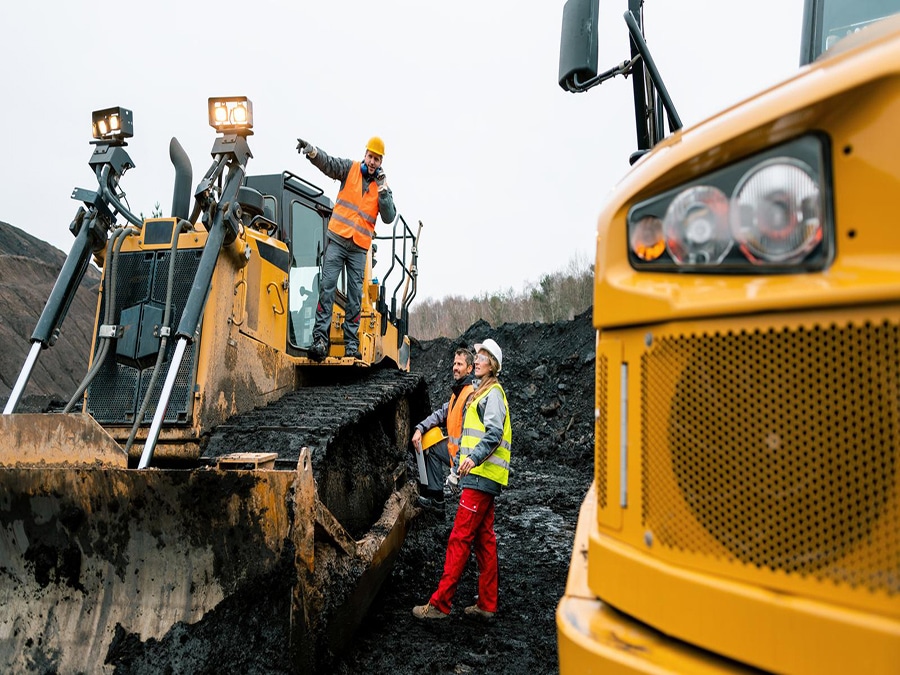Can you receive workers’ compensation after a heavy equipment injury?
In certain occupations such as agriculture, manufacturing, construction, mining and trucking, heavy equipment is frequently used. People in these industries who must work alongside or operate heavy equipment may be exposed to a significant risk of injury stemming from accidents.
If you or a loved one were injured on the job due to a heavy machinery accident, you may be entitled to workers’ compensation benefits under North Carolina law. To find out if you have a case, reach out to an experienced workers’ comp lawyer in your area.
Common heavy equipment in the trades
Heavy equipment refers to any type of large equipment used in a variety of trades, including:
- Articulated loaders
- Bulldozers
- Backhoes
- Bobcats
- Back-end loaders
- Crawlers
- Cranes
- Compactors
- Cement mixers
- Cherry pickers
- Dump trucks
- Hoists
- Hydraulic lifters
- Excavators
- Forklifts
- Loaders
- Pay haulers
- Pay loaders
- Paving machines
- Road graders
- Rollers
- Power shovels
- Scissor lifts
- Scrapers
- Skidders
- Trenchers
Common causes of heavy equipment accidents
Regulations established by the Occupational Safety and Health Administration (OSHA) are intended to reduce the risk of accidents. Specific guidelines are given for the use of conveyors, hoists, cranes and other types of heavy equipment. There are serious consequences for violating these standards, including the shutdown of a construction site, heavy fines and even civil or criminal liability.
Despite these regulations, accidents still occur.
According to the U.S. Bureau of Labor, approximately 400 people are killed each year in heavy equipment accidents. The construction industry is among the most dangerous professions for these types of accidents.
Heavy equipment accidents and injuries occur due to a variety of reasons. One of the most common causes is negligent, reckless or careless behavior of supervisors and/or workers on the job site.
Other causes of these accidents include:
- Improper setup of equipment
- Electrical hazards
- Insufficient pre-planning
- Equipment failures
- Weak structural foundation on which heavy equipment rests
- Using improper equipment for the job
- Mishandling of equipment
- Poorly maintained or defective equipment
- Untrained project supervisors
- Violation of safety protocols and standards
Common heavy equipment injuries
Accidents involving heavy equipment can result in a variety of different types of injuries, depending on the nature of the accident. A piece of heavy equipment can choke, pin, crush, strike or entangle workers.
Some of the more common injuries arising from these incidents include:
- Brain injuries
- Amputation
- Bone fractures and breaks
- Tissue damage
- Death
When you or someone you care about is injured in a work accident, your entire world can change in an instant. While nothing can ever make up for the injury, especially for those resulting in a fatality, it’s important to know that most individuals and families in North Carolina are covered by workers’ compensation.
Serious injuries may require surgery and ‘round-the-clock medical care. In some cases, your life may never be the same and you could be left facing the prospect of a long-term disability. Even if you are able to return to work following a recovery period, your medical expenses will be covered and you will be compensated for lost wages.
Additionally, the prospect of not being able to return to your former line of work must be considered. You may need vocational rehabilitation and training in order to pursue a different job or career.
What to do after a heavy equipment accident
Your first priority should be to receive any necessary medical care. It’s also imperative that your supervisor is informed of the accident so that it can be recorded properly. When possible, try to obtain as much information as possible regarding the accident, including medical records, accident reports and witness contact info.
If your injury occurred in Charlotte or nearby cities in North Carolina, talk to a local work injury law firm. Our Charlotte workers’ comp attorneys are familiar with heavy equipment accidents and can provide invaluable insight into your rights and guide you through the process of filing a workers’ compensation claim.
What happens if the heavy equipment or machine was defective?
In some instances, accidents involving heavy equipment are not the result of the negligence of anyone on the worksite. Sometimes, they occur due to malfunctioning of the equipment. When the equipment was defective, you may wonder whether or not you are able to sue the manufacturer.
If an injury results from defective equipment instead of misuse, the manufacturer may be held liable for any resulting injuries. Furthermore, any party within the supply chain, which includes retailers and wholesalers, may have some legal liability as well.
By consulting with one of our North Carolina injury attorneys, you will have the best opportunity possible for recovering the benefits to which you are entitled, whether that is through a workers’ compensation claim or by suing the manufacturer.
Ready to get started?
Contact us today for your free initial consultation.
What Is a Waiver of Subrogation in Workers’ Compensation?
Learn when and why waivers of subrogation are used and how they can affect your claim after a construction injury in Charlotte.


